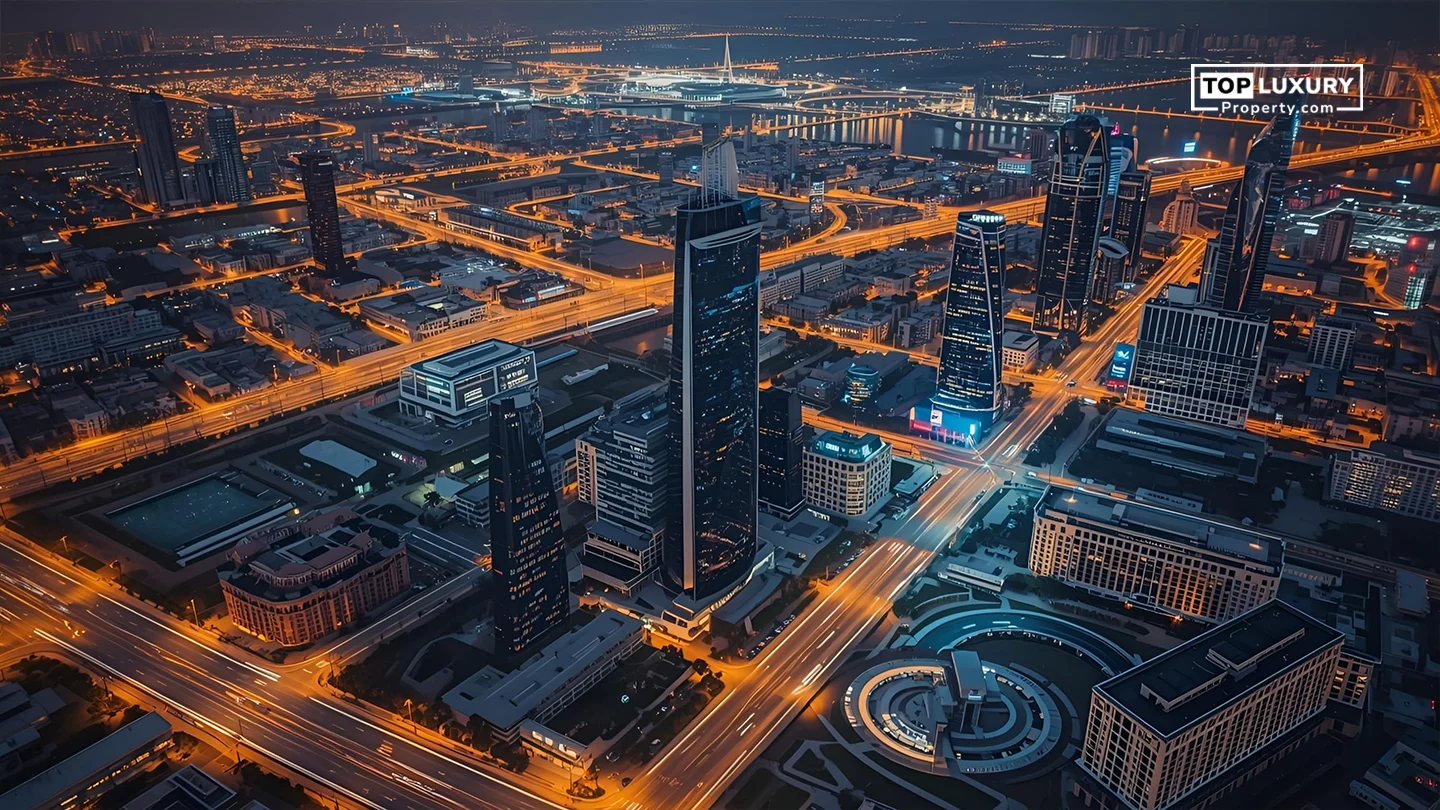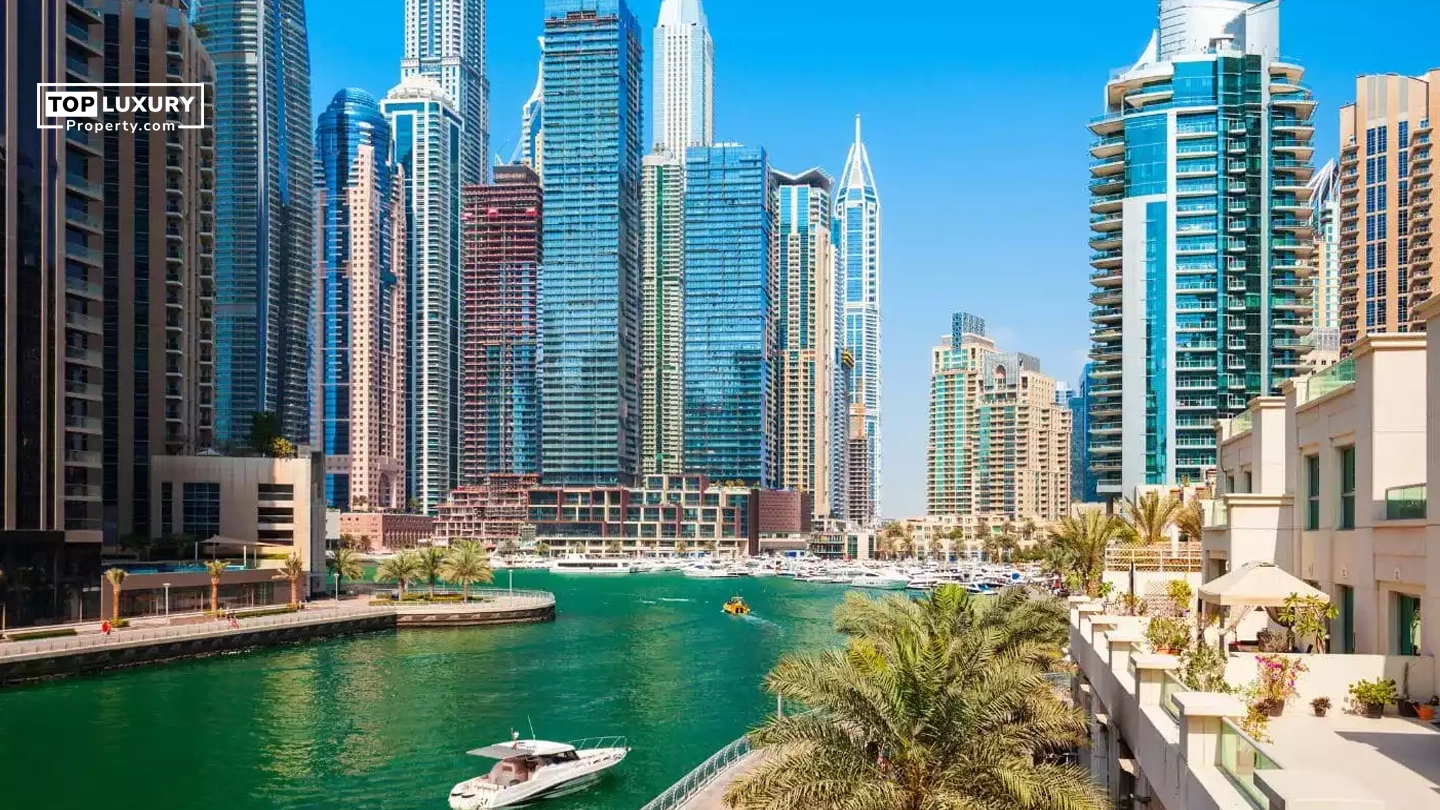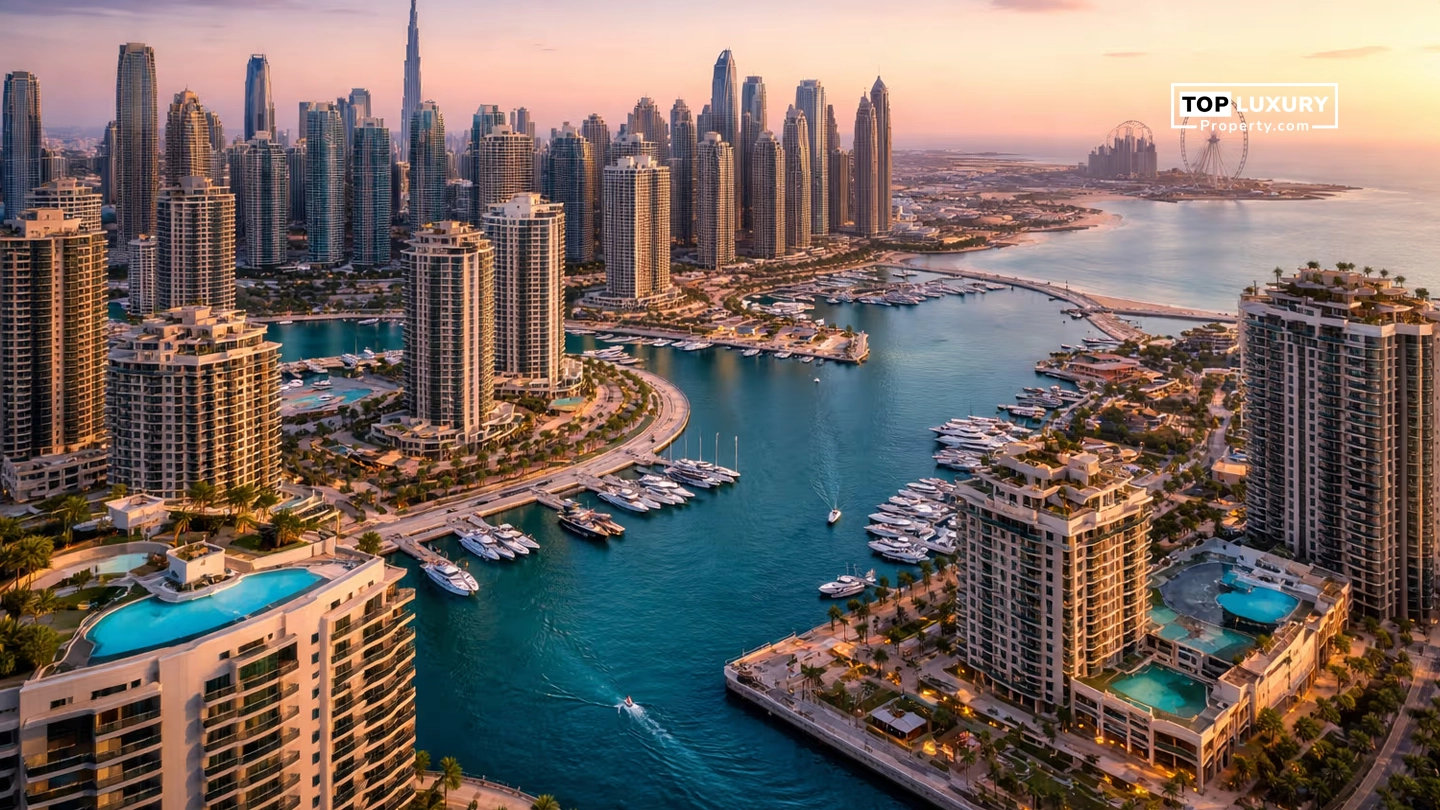UAE’s Smart City Transformation
With the UAE leading the pack in smart city growth, urban environments are being transformed at a swift pace as Proptech becomes the new foundation of such a transition. Proptech has raised over US $100 million in the past five years and has an estimated CAGR of 16.8% that will see the market reach US $86.5 billion by 2032 — a surge also reflected across Dubai luxury projects.
The leading real estate stakeholders are located in Dubai where 46 percent of the stakeholders have implemented IoT smart building solutions, 42 percent have implemented AI-based lease management, and 39 percent have implemented VR/AR in property tours (JLL 2023).
There is a growing demand for Smart homes in Dubai with off-plan projects becoming increasingly automated in the energy system, the ability to predict the maintenance of their systems, as well as monitor in real-time that is in line with the net-zero and sustainability initiatives in the UAE.
The article will examine how Proptech is assisting the smart city vision of the UAE, the technologies that are changing the landscape, real-life examples, and the issues and opportunities ahead of developers, investors, and residents.
Introduction to Proptech and Smart Cities in the UAE
Proptech, which is an abbreviation of property technology, is a combination of real estate and cutting-edge digital technologies to improve the way properties are built, sold, managed, and experienced. The technological revolution is perfectly aligned with the national strategies in the UAE, like UAE Vision 2031 and Smart City 2025 Master Plan in Dubai.
The concept of smart cities is a group of cities that have used digital infrastructure, AI, IoT, and data analytics to enhance a high quality of life, sustainability, and economic efficiency. Proptech is not just a trend in the UAE, it is an enabler of the transformation of the country into a global innovation hub.
Key Technologies Driving Proptech Innovation
- Smart Building Systems (IoT-Internet of Things): Live energy, water, security monitoring. Examples: programmable thermostats, automated lighting and leak detection.
- AI Predictive Analytics: Automation of the lease management, property valuation and market forecasting.
- VR/AR (Virtual & Augmented Reality): Dubai offplan property tours and AR staging of customisable interior previews.
- Real Estate Transactions Blockchain: Clear, fraud-proof records of property. Smart contracts to accelerate the sales of the UAE real estate projects (UAE Real Estate Projects).
- Urban Simulation & Digital Twins: Urban planning in real-time, applied in masterplans of the Dubai luxury projects of large scale.
Proptech’s Impact on Urban Planning and Development
- Quicker Project Approval: Digital twins enable authorities to simulate scenarios on infrastructure projects prior to building.
- Better Public Services: IoT will guarantee the proper management of waste, water, and energy.
- Increased ROI to Developers: Smart buildings have a premium price of 3.8-5.2 percent and a 45 percent shorter sales cycle.
The UAE Urban planners can now synchronize the plans of residential, commercial, and even the public infrastructure with the real-time data, which is cost-effective and more sustainable.
Enhancing Sustainability Through Proptech Solutions
- Energy Efficiency: Artificial Intelligence-based HVAC and IoT sensors reduce energy consumption by up to 30%.
- Waste Reduction: Fill sensors on smart bins allow optimum waste collection.
- Carbon Footprint Tracking: Live environmental displays to building managers.
The Smart Homes program in Dubai is encouraging the adoption of renewable energy systems, and Estidama Pearl Rating System in Abu Dhabi is encouraging green building standards. To the investors, sustainable offplan projects are rapidly turning out to be a selling point.
Case Studies: Proptech in UAE’s Smart City Projects
| Project | Location | Proptech Features | Impact |
|---|---|---|---|
| Smarter City of Dubai Silicon Oasis | Dubai | IoT sensors, smart lighting, driverless shuttles | Cut energy bills by a quarter, enhanced traffic flow |
| Masdar City | Abu Dhabi | Urban simulation, AI, renewable microgrid | Global sustainability model, carbon-neutral operation |
| Tilal Al Ghaf | Dubai | Intelligent water usage, AR property tours | 40 per cent more pre-sales of offplan units |
| Saadiyat Grove | Abu Dhabi | Blockchain contracts, digital twin modeling | More rapid approvals of projects, 15 percent savings of transaction time |
| Emaar Beachfront Smart Homes | Dubai | End-to-end home automation | Brought in premium international clients who wanted Dubai luxury developments (a Dubai Luxury Project) |
Such examples show that Proptech does not only introduce convenience, but it also has a direct impact on sales, investor trust, and sustainability.
Challenges and Future Opportunities for Proptech in the UAE
Although the UAE leads in implementing Proptech, a number of issues are still present:
Large Upfront Cost: Smart city and Proptech infrastructure are expensive.
Regulatory Adaptation: The necessity of new legislation that will support property transactions through blockchain and AI.
Data Security: Privacy of personal and transactional information is very important to building trust.
Opportunities Ahead
5G & Edge Computing: Will make it possible to experience AR/VR in real-time and manage IoT more efficiently.
AI-Powered Urban Planning: Future real estate projects in UAE can be optimised by AI-Powered Urban Planning.
Metaverse Integration: Connection to the Metaverse to conduct virtual real estate.
Conclusion
Proptech is not just a trend in the UAE real estate sector; it is an element of the smart city vision of the country. Technology is improving sustainability, efficiency, and investment returns, whether it is smart homes in Dubai, or AI-driven city simulations. Proptech is no longer a choice but a necessity among developers as the property market in the world is one of the most dynamically evolving — including Dubai off plan Projects.







